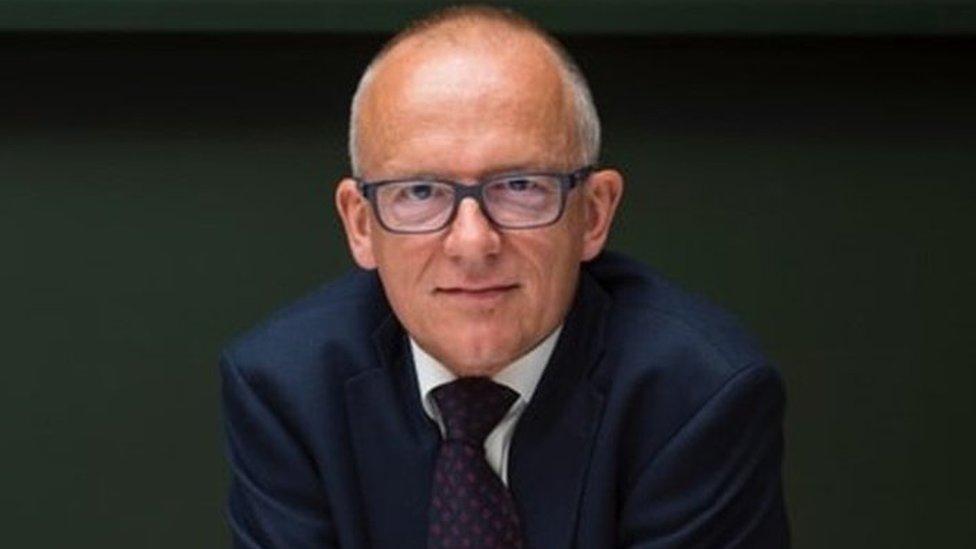Met Police creates anti-corruption unit to 'root out' criminal officers
- Published
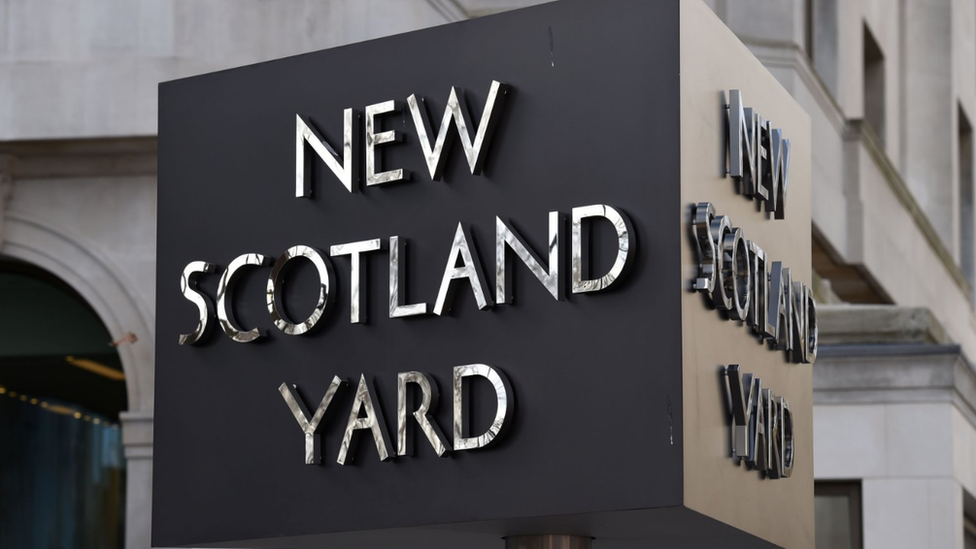
The unit will use bold new tactics to identify police officers and staff who have no place in the Met, the force says
The Metropolitan Police has created a new anti-corruption unit to "root out" criminal colleagues within the force.
Commissioner Sir Mark Rowley has assigned about 100 detectives to help the Met's fight against wrongdoing within the ranks, the force said.
The move follows a number of high-profile scandals over sexism and misogyny allegations.
The Met said the team would deploy covert tactics to "identify and respond swiftly to any emerging threats".
Speaking about the new Anti-Corruption and Abuse Command, Sir Mark said: "We will be proactive and unrelenting in actively seeking out these criminal colleagues.
"I make no apology for this ruthlessness in evicting those who undermine our integrity as we seek to reform the Met and give the public the confidence in us they deserve."
Sir Mark Rowley spoke to BBC Breakfast in April 2022 about the challenges facing police
So far this year a number of former Met Police officers have been convicted of various offences: ex-detective Neil Corbel was jailed for secretly filming dozens of women; Swaleh Chaudhry pleaded guilty to upskirting a woman in a Primark changing room and PC Adnan Arib was jailed for using his position to try to start a sexual relationship with "vulnerable" teenagers.
The new unit is to adopt the same tactics used to target those engaged in corrupt relationships with criminals, the Met said.
It also aims to tackle those whose behaviour "corrupts public trust".

Det Insp Neil Corbel who secretly filmed models during fake photoshoots was jailed for three years in January

Analysis
By Home Affairs correspondent Tom Symonds
In the fictional world of AC12, the BBC's drama Line of Duty portrayed a team focused on rooting out "bent coppers" as the character Supt Ted Hastings famously said, in order to bring them to justice.
This new command is the Met's equivalent.
In the past the force has had a serious corruption problem, with police officers taking advantage of a close relationship with criminals or private investigators working for newspapers.
Even last year an officer was jailed for working with a gang to steal drugs from its rivals by stopping them under the pretext of police work.
But it is becoming increasingly clear that the Met's current reputational problems stem from, broadly, abusive cops.
More cases are coming to light of domestic and sexual abuse, ranging from inappropriate touching to rape, and in the case of Sarah Everard, murder.
There are also more opportunities to dig it out, as technology reveals new evidence in the form of videos and online messaging between police officers.
It will be with a heavy heart that the commissioner Sir Mark Rowley takes a decision to invest in policing the police. A new Anti-Corruption and Abuse Command is a serious investment.
He'd rather be catching criminals outside the Met, but the force will be unable to "move on" until this scar on its reputation is erased.

Six months ago, a watchdog report said "it would not describe the Met as institutionally corrupt" based on an inspection carried out at the time.
But, it did say the force's approach to tackling corruption was "not fit for purpose".
Earlier this year, the police watchdog found "disgraceful" examples of bullying and sexual harassment at Charing Cross police station in central London.
The previous Commissioner Dame Cressida Dick faced criticism over, among many other issues, the murder of Sarah Everard by a serving Met officer last year.
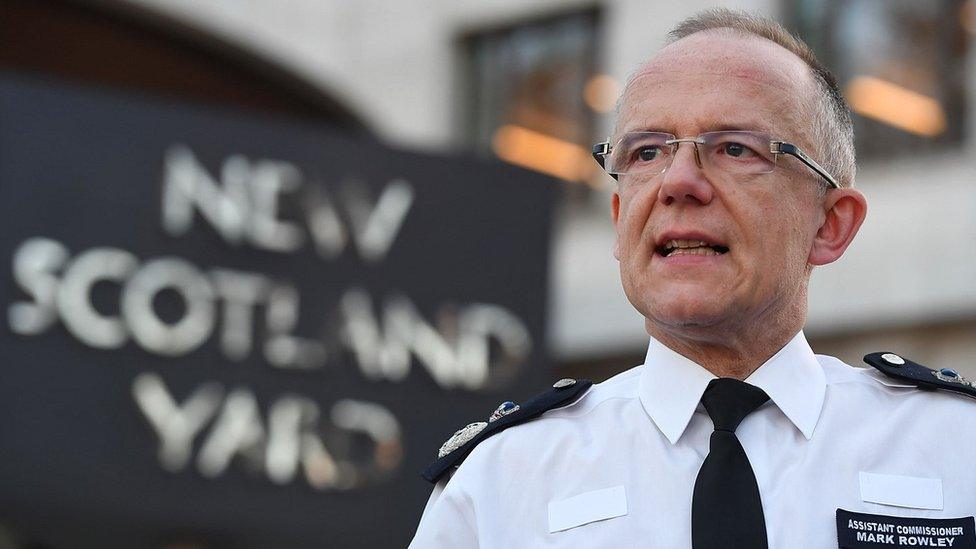
Sir Mark Rowley succeeded Dame Cressida Dick as the new Met Police commissioner last month
Sir Mark said: "In recent years we have seen the corrosive effect corrupt, racist, misogynistic, homophobic, abusive and criminal officers and staff have had on the levels of trust our communities have in the Met.
"This also undermines our crime fighting efforts and impedes our ability to investigate offences.
"Both communities and our honest determined majority of officers are rightly angry.
"As part of my commitment to renew policing by consent and to bring more trust, less crime and high standards to the Met, I'm investing in extra officers and staff, skills and technology to root out those corrupt or abusive officers or staff."

Follow BBC London on Facebook, external, Twitter , externaland Instagram, external. Send your story ideas to hellobbclondon@bbc.co.uk, external
- Published5 October 2022
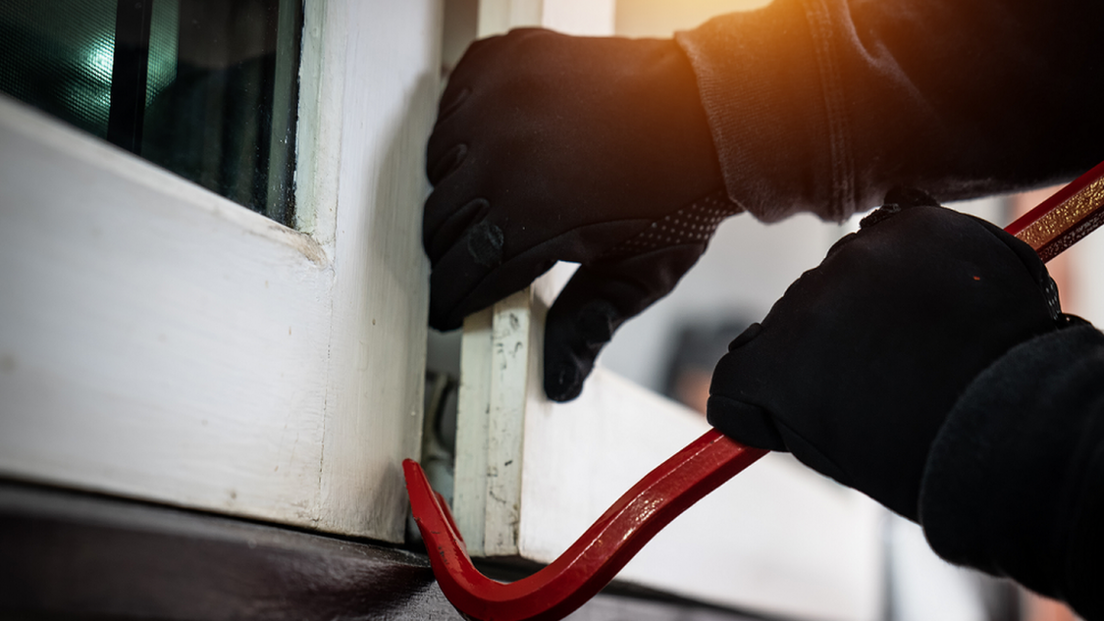
- Published12 September 2022
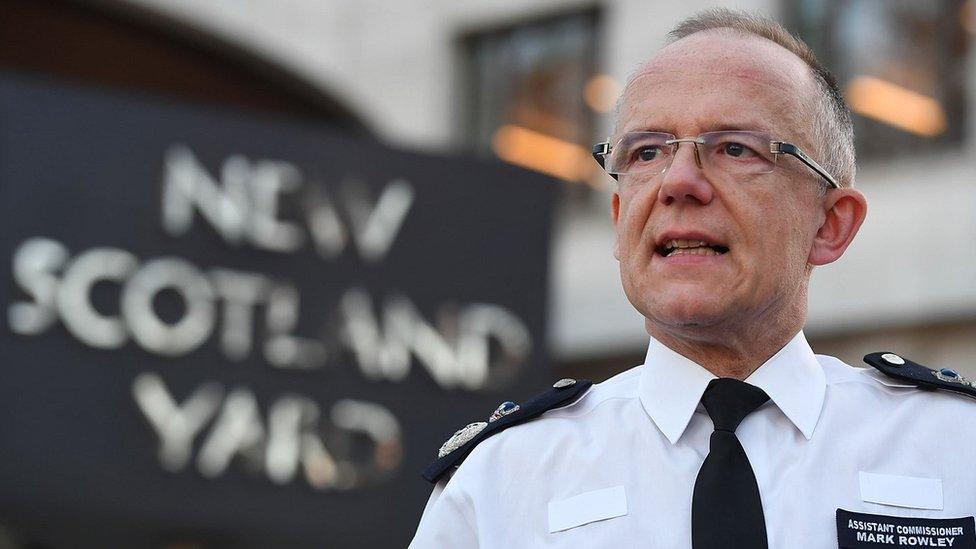
- Published8 July 2022
